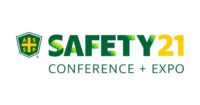Nitrile biodegradability of certain gloves, use of recycled materials in gloves, product packaging, the environmental impact of disposable gloves, carbon emissions during glove production and improving sustainability across the full product lifecycle are becoming major issues.
One driver is large companies’ interest in maintaining or achieving high ESG (environment, social and governance) rankings on Wall Street. To maintain or achieve high “good citizen” scores companies need their supply chain to reduce the environmental impact of their products.
Suicides in construction can’t be ignored
“Mental Health & Suicide Prevention” was the title of an educational session Tuesday morning. The rate of suicides in construction is five times the rate of fatal injuries. Some factors that make construction particularly stressful:
- Macho culture
- Chronic pain
- Sleep problems
- Isolation
- Layoffs
- Prevalence of drugs and alcohol abuse
- Opioids
- High-pressure schedules and production
- Access to lethal means
- Reluctance to seek help, care and treatment
- Leadership training is lacking
Safety meetings become wellness meetings
A transformation is occurring in a small but growing number of companies putting time, money and other resources into the “health” side of “safety and health.” The goal is now becoming not just to be injury-free but a healthy place to work.
One company divides its safety meetings into emotional well-being meetings and physical safety meetings. Emotional well-being meetings can cover nutrition, sleep, exercise, finances, retirement planning and resources such as EAPs. The company CIH is considered the certified industrial health professional.
The goal: develop a workforce community that is socially connected, physically and mentally healthy, informed and looking out for each other.
Outgoing ASSP president sees opportunities for the profession
Christine Sullivan, CSP, ARM, will turn the reins of the presidency over to Jim Thornton at the end of this week’s conference. She shared these thoughts in an interview:
The conference’s record attendance of more than 6,000 is due to “people wanting to get back together. They want to see people in 3-D” after the pandemic lockdown.
Due to the pandemic many pros have higher visibility in C-suites and boardrooms than ever. Safety has been put on the front burner and for it to stay there, Sullivan says pros must keep the momentum going by holding on to their seats at the executive level and showing continuing value. They must know how exposure controls and risk management lower costs and increase corporate reputations.
The new school of safety: HOP
At a morning session the principles of human and organizational performance (HOP), a philosophy gaining traction at large corporations and in time night trickle down to smaller firms, were presented:
- Error-tolerant systems and risk-focused operating are keys
- To err is human
- Processed and systems greatly influence employee choices and behaviors
- People are fallible
- Workers are masters of problem-solving
- Engineer work to set people up for success
- Blame fixes nothing
- Leadership’s response to failure really matters
- Stop making safety a priority and make safety the responsibility of operations




